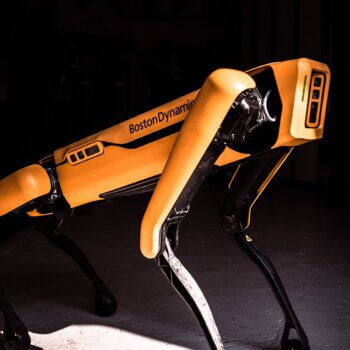Bali, with its tropical climate, laid-back lifestyle, beaches, jungles and cheap beer, has long been a holiday-maker’s paradise. The ‘Island of the Gods’, a province of Indonesia, is a popular playground and place of reflection for Australian, Asian and, since Julia Roberts had a mid-life crisis on its shores in Eat Pray Love, American travelers. In recent years, the very reasons for the island’s booming tourist trade have also made it an attractive place to do business from. Bright, driven folk striking out on their own have realized they can live and work in paradise, rather than just holiday in it. So what business realizations are travelers having on their wanderings around the island?
- Eat, drink and generally live like a king = cost of living (and of doing business) is low relative to developed economies, and time can be bought back by outsourcing the chores of life.
- Relax and reflect in paradise = escape the daily grind of big cities and stresses of everyday life, and gain new perspective on your work.
- Soak up the island’s renowned nutrition, wellbeing, art and culture pursuits = immerse your work mind in a creative, inspiring and energetic atmosphere.
Peter Wall, co-founder of the island’s first major co-working space, Hubud, speaks of the hinterland town of Ubud as the island’s creative hub, and the perfect place to escape the rat race:
“Bali has always been recognized as an incredible creative hub. You can come here and experiment, do things a bit differently, step back from the business and work harder or smarter. The day-to-day grind in a big city can wear you down. Living here no-one doesn’t want to come to work. No-one is doing things they don’t want to do. There’s a really nice energy in our space; there’s something about getting out of your normal cubicle and working in a space that feels different.
“My commute to work is two-and-a-half minutes through a monkey forest. I’ve never been as productive as I have been living in Bali. There’s an opportunity here to access yoga, healthy food and fresh air that’s more difficult to come by in a city. It’s a place people come to get perspective on their lives… a unique opportunity to get perspective and focus.”
With over 200 members, and around 50-60 daily coworkers, Hubud is one factor in the growth of Bali’s creative and startup business community. Wall and co-founder Steve Munroe use the space to help build a stronger community of entrepreneurs, hosting 25 events in November, encouraging ‘exchangeable learning’ and sponsoring hackathons and Indonesia’s social innovation award. The pair are also developing a ‘soft landing solution’ for new arrivals which will include airport pickup, phone number and phone, accommodation, cleaning, laundry, food, desk space and other support for a monthly rate. Understanding and transparency of costs is a sticking point for many, according to Munroe.
A similar set-up can be found at co-working and co-living startup accelerator, Startup Getaway, located near Denpasar and offering offers one, three or six-month stays for entrepreneurs to work on their startup without any distractions or daily chores. The same team is also behind the 30-day networking event Project Getaway and the Contenga International co-living and coworking environment.
One of the facility’s alumni, co-founder and CEO of Windows mail client Mailbird, Andrea Loubier, says the community in Bali is fresh, innovative and creative but, like a startup, still in its early stages. Originally from Cincinnati, Ohio, Loubier has stationed her team — a mix of Danish, Indonesian and Colombian nationals — in a town between Ubud and Kuta. She believes:
“Operational costs can be bootstrapped much easier than in the US or Denmark, simply due to the high cost of living in Europe and America.
“It’s beautiful here; it’s in an up-and-coming, rapid-growth market, with Indonesia being the fourth largest population in the world. The tech industry is growing rapidly as well, and more and more students are seeking degrees in technology which is very promising for building a stronger economy in Indonesia. We have some of the best team members on Mailbird from the prestigious Institute of Technology Bandung right here in Indonesia. We are excited to be part of the movement specifically in Bali, where we already feel that our startup community is a great example of eliminating the extra day-to-day to-do’s, so you can fully dedicate your time to building an exciting business while also enjoying life.
“It’s funny when you tell people that your startup is based in Bali — they’re surprised or don’t take you seriously. Then they are surprised when they see the traction and global awareness of the startup.”
“Our little, Bali-based startup has been recognized worldwide after we were picked up by major tech news publishers and blogs like TechCrunch and Lifehacker.
“The warm weather keeps you happy and very motivated in Bali too.”
Another coworking space in the island’s coastal town of Sanur, a female entrepreneurial group called Secret {W} Business and #subali meetups add to the community on the island.
Three years ago, TEDx made its way to Bali’s shores, started by digital designer Daniela Burr. Earlier this year the event was attended by a curated group of 400 innovators, creatives, cultural leaders and social pioneers. Burr started TEDxUbud after falling in love with the island:
“It happened unintentionally. I took a sabbatical in 2010, inspired by designer Stefan Sagmeister and came to Bali following his advice. I loved it. I started TEDxUbud just two months after landing and it grew exponentially, completely changing my life. I run a digital design studio and have the ability to work from anywhere… Bali quickly became the perfect spot. I’ve met the most incredible people on this island, we now have a great co-working space, and I get to live what I always thought was a dream life.”
Working in paradise, and in a developing country remote from major business centers, has its drawbacks, but those working there find them insignificant compared to the benefits. Budgeting, safety, language/cultural barriers and internet speed can be factors to contend with, but are issues easily managed. Access to outside networks, events and resources not yet established in Bali also need to be managed — raising investment requires flying in or flying out, for example.
The picture painted by the entrepreneurs and digital nomads who’ve chosen the Bali work-life haven is a rosy one. The business case is strong, and the vibe of the island is proving for many to be the special ingredient needed to unlock inspiration and creativity. It’s not hard to see why it’s becoming a hub for startup business and creative industries.
______________________________________________
About the Author
This article was written by The Fetch contributing writer Chris Byrne. The Fetch is the best place for professionals to share and discover what’s going on in your city. Subscribe to our free, curated weekly email digests here and follow us @thefetch.





























